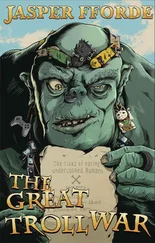Not only new clothes, but also used clothes, worn-out clothes that were no longer usable, and piles of rags had been brought to light by her diligent fingers, and with them came masses of moths that swung merrily through the corridor. When Burgmüller returned, she was in the process of catching some of them, examining them closely, and letting them go again.
His apartment had been crumpled up into a mountain of rubbish, whose highest detritus-peaks looked down upon the clothes-forest foothills, from which the rugged plain of torn-up floor-boards stretched from the window-horizon to the ceiling-sky, across which flocks of swifts drew their flight paths. All the rooms had been karstified, become a walled, almost dead steppe, a dreary, hollowed-out country full of ruined spaces as though in an abandoned mine, all locked into the building, shrouded by the waterproof hat of the attic-atmosphere and its tyrannical thunderstorms, below which the laundry rooms quivered and quaked.
As he surveyed the new continent of his apartment, Burgmüller felt a growing despair about her destructive work; at first he’d been on the verge of hiding his despair in a fit of rage, but concealed it as best he could without this measure, because otherwise he would have threatened her narrative, her story, which had turned into a narrative war against him. So he just asked her if she had found what she was looking for.
Yes, she had found something, a pin, of all things. Otherwise she had completely deciphered their living space, as she put it, only this pin had struck her as highly suspicious and had to be examined more closely, she pointed to a barely visible, strange bulge on the head of the pin, she absolutely needed a microscope, right away, she said, where did he keep his.
If she hadn’t found one here in these rooms, he didn’t think there was one.
Then he should get one as quickly as possible.
But where was he suddenly supposed to get a microscope, he tried to talk her out of wanting the instrument, said it was impractical, old-fashioned, much too expensive: what about a magnifying glass, wouldn’t that do?
But by the time he had talked her into a magnifying glass, had made her understand that it would do, and promised to get one at the nearest optician’s without delay, he was able to watch her create one of her room thunderstorms, at which she had become very proficient over time. These room thunderstorms weren’t an expression of her anger at him, but rather of her helplessness, because whenever she didn’t know how her narrative was to proceed, she offered him a beautiful performance of natural theater in the apartment by sending a few lightning flashes from her eyes up into a corner of the room where they gathered threateningly until the walls steamed with heat, releasing her gaze, which twitched back down from the ceiling of the room, causing a colorfully glistening, all-in-all liberating sort of fireworks to rain down upon the whole room like a sigh of relief.
Soon afterward, he got a magnifying glass, and she immediately took a close look at the pin that seemed so dangerously suspicious to her.
He was stunned by what she discovered: on the head of the pin, there was a portrait of Burgmüller, carefully painted with great skill.
For some time he didn’t know what to make of it, until he thought he had found the solution, and he told the story of the painter Florian Waldstein, who had suddenly disappeared without a trace quite some time ago. In the time leading up to his disappearance, the formats of his paintings had gotten smaller and smaller, yes, one day the painter had asked for a photo of Burgmüller from which he could paint a portrait. Shortly afterward, an odd jeweler’s box with this pin had been sent to him, and he hadn’t known what to make of it: this picture here, quite clearly from the painter’s late period, was presumably in the smallest format ever used by him.
But neither the story nor the portrait made much of an impression on her, no, she wasn’t interested in that at all, she had eyes only for the pin itself, as if the picture, his portrait, had been visible only to him, and not at all to her.
Did he know about pins, she asked.
No, he hadn’t read enough about pins to know anything more specific.
When she kept tinkering with the pin and made as though to scrape the portrait off it with a razor that she had him fetch from the bathroom, he tried to prevent her from doing so with a cautious comment about the sentimental value of the picture.
That’s ridiculous, she replied, he couldn’t feel that way, or could he prove that the story took place exactly as he had told it, and that this wasn’t a forgery designed to trick him into giving credence to the very story he had told her?
Then she extracted something the size of a speck of dust from the hollow depression in the micro-painting, and said it was a highly complex object, see here, she said, the bug — she blew a few sticky remains of colored dust out the window — until now, we’ve been bugged, eavesdropped upon by this, but that’s over with now, once and for all, we’ve gotten rid of it in the nick of time.
Burgmüller’s expression may have looked all too astonished, because she asked him to trust her more in future than he had until then. Show some trust in me at last, she exclaimed. As if to lend more emphasis to her request, she brought the pointed end of the pin close to various parts of his body, just in passing, seemingly without touching him. Still, he definitely felt himself pricked again and again, and of course he tried to get away from her.
See, she said, this pin here is so sharp that you can’t even see its tip — and she spoke about a special attachment that was fitted onto the device; but this pin is even sharper than that, because you’ve already been pricked by it, without being able to feel it, when the face of the fine point of the pin just flashes for a moment in your direction, yes, in reality I could already have riddled you with holes spread evenly over your whole body, without your noticing it at all, but before you would be in a position to imagine such a fine-pointed tip, you would long since have imagined yourself somewhere else entirely, far beyond the likely disintegration of yourself, now do you finally understand what I’m talking about?!
She seemed somewhat calmer now; or had the unaccustomed physical activity done her good and simply exhausted her?
Their situation, she said, was now no longer as desperate as she had originally feared, but in her opinion that was still no reason for them to be hopeful that things wouldn’t, or wouldn’t yet, or would no longer turn out as she had originally expected. Above all, there was the mystery of how she and he had turned up in these rooms, why the two of them found themselves here in this room, of all places, after all the difficult times they had experienced, which were now past and lay behind them, full of not-yet-survived, pluperfect days. . yes, they had turned up in these rooms, which had now at last become the rooms of their story, had now been conquered by their story, taken prisoner as in a narrative war that had ravaged its entire world with the laughter of its fluttering scraps of wallpaper, with the grinning of its flung-open closets, from which, as from opened cages, the entire brood, the swarms of stuffed birds, had flown away, knocking themselves to death against the ceiling, or plunging down into the torn-up cliffs of the floorboards that were sticking up. .
He kept looking at her, into the backlighting refracting as it flowed away down the roadsides of her silhouette, painting over the embankments of her blonde eyebrows with charcoal dust that was forced in through the window by a rainstorm starting at the edge of the city: he soon dove into its floodlight and under the sea of darkness, in which he thought he could faintly sense the trajectory of their common diving movements, rather like an old heap left over from the rag-and-bone shop of their last hopes, surging from room to room, across the entire beach floor of the apartment, in order to surface again on some very distant day, a long time from now, just as he wished. . perhaps beside each other at the edge of their story-room ships, like two children by a stream one summer, a summer beckoning to him, its windowpanes billowing like sails, from the sleep now coming over him. . because the characteristics of the intended document that would contain all those derisive descriptions were intended to be provided in full, together with their unintended villages of secrets lying beyond the borderline of imagination. . as
Читать дальше











